On September 30, 1979, the “interdisciplinary research year 1978/79”, in which Professor Dr. Norbert Elias, among others, participated, ends at the ZiF. The great German-Jewish civilization theorist – he calls himself a “human scientist” – enjoys working and living in the ZiF, “a paradise island of the international academic world” (Koselleck). He decides to stay and becomes a kind of “permanent fellow” of the ZiF until October 1984.
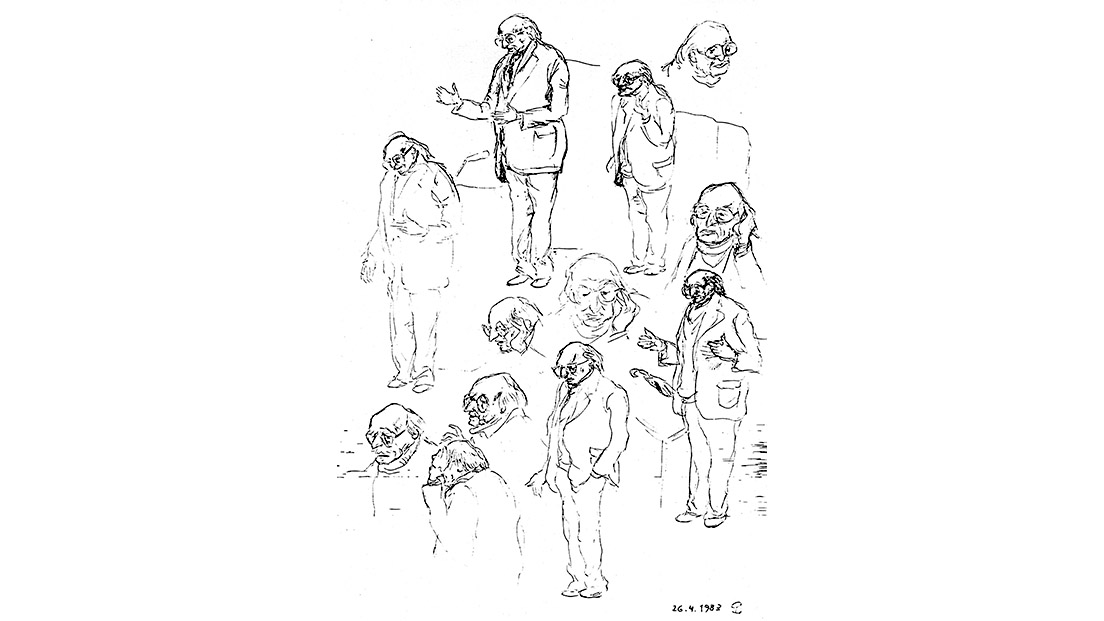
Drawing of Norbert Elias by Prof. Dr. Theodor Schulze on the occasion of his lecture “Conditio humana: Beobachtungen über die Entwicklung des Menschen” (Conditio humana: Observations on human development) on 8 May 1985.
–
Drawing: Theodor Schulze
Source: Universitätsarchiv Bielefeld
Elias, who until 1933 was assistant to the sociologist Karl Mannheimer in Frankfurt/Main, fled from the Nazis to England in 1933. In the 1970s, encouraged by the positive reception of his two newly published major works “The Civilizing Process” (1939, 1939/1976) and “The Court Society” (1933, 1969) he returned to Germany at an already advanced age. In April 1971 the ZiF – at that time still in Rheda Castle – dedicated its first Author’s Colloquium, a special kind of workshop devoted to the work of an important academic author, to Norbert Elias. Further invitations followed. After the “interdisciplinary research year 1978/79”, Elias remained – with interruptions – a guest of the Center in Bielefeld until 1984. Time and again he contributed passionately and intensively to the research activities of the ZiF, especially to the research group “Funktionsgeschichte literarischer Utopien in der frühen Neuzeit” (Functional history of Literary Utopias in the early modern period) in 1980/81.
Much of his later work was created in Bielefeld. On 22 June 1980, the Faculty of Sociology awarded him an honorary doctorate and in 1986, at the suggestion of Bielefeld University, he was awarded the Order of Merit of the Federal Republic of Germany: Knight’s Commander’s Cross by the President of the Bundestag.
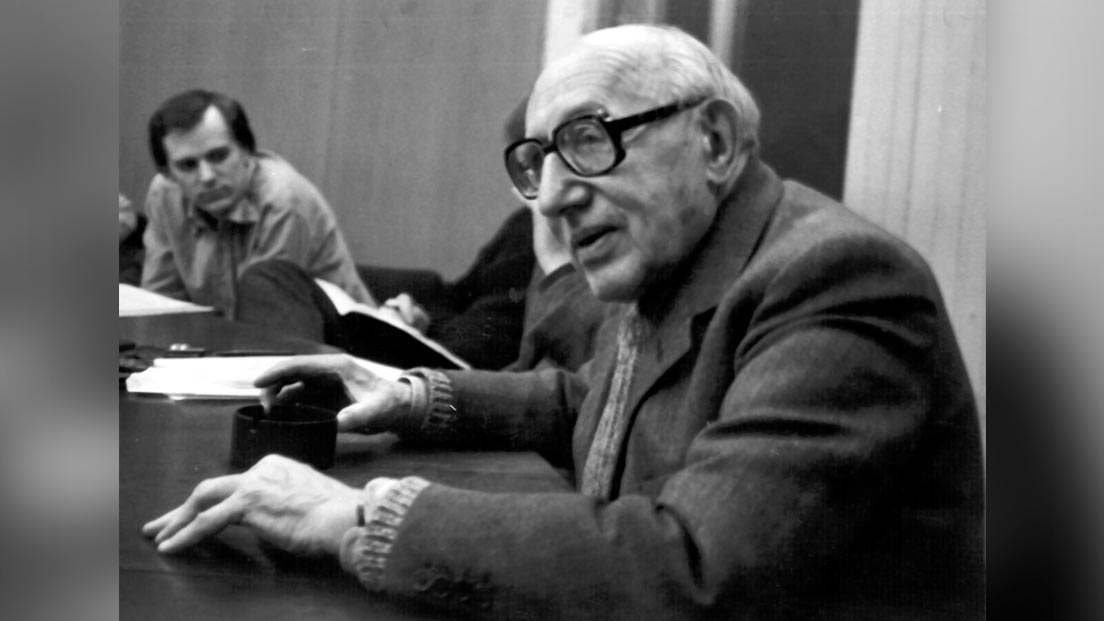
Norbert Elias, around 1983.
–
Photo: unbekannt
Source: Universitätsarchiv Bielefeld
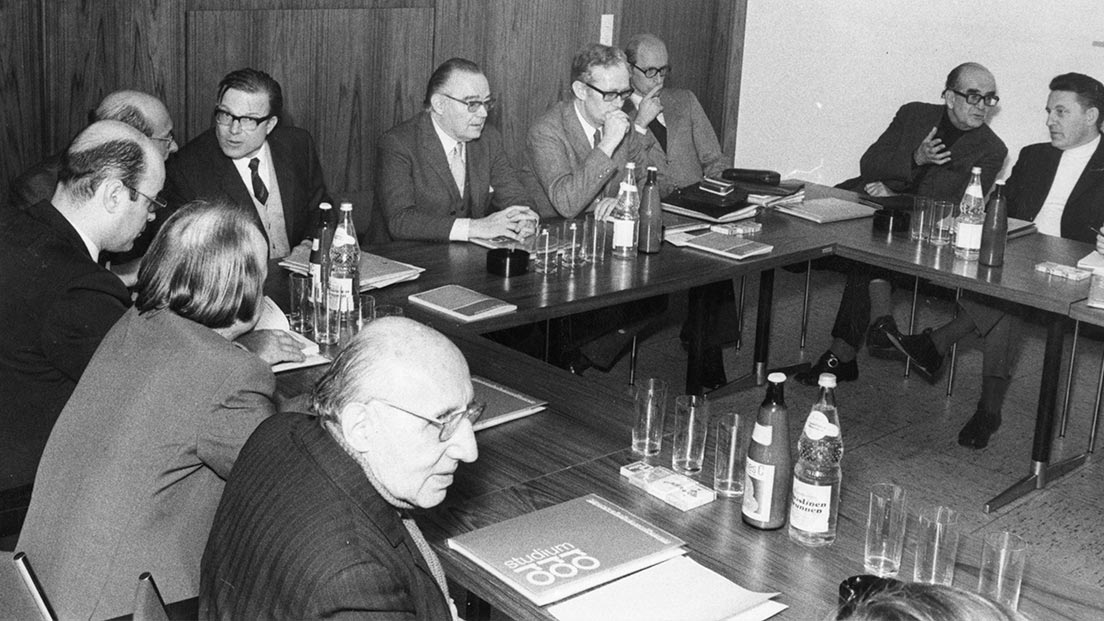
Author’s conference on the “rororo” paperback series “Studie Sozialwissenschaften” on 13 April 1972 at the AVZ of Bielefeld.
–
Photo: Ed. Heidmann
Source: Universitätsarchiv Bielefeld, FOS 01945
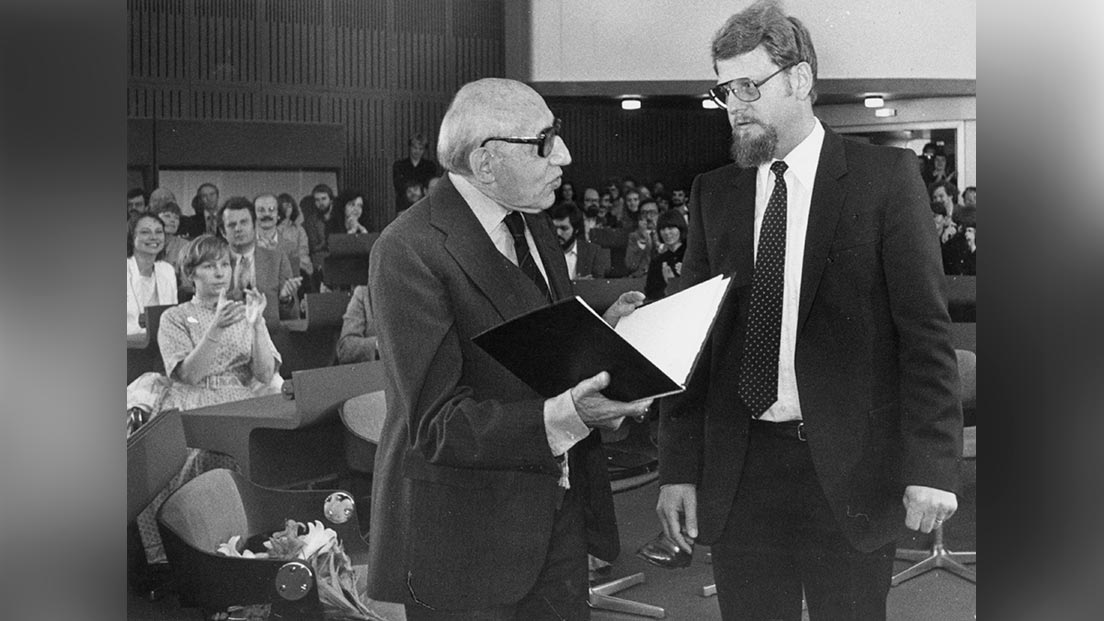
Norbert Elias is conferred an honorary doctorate of the Faculty of Sociology by dean Professor Dr. Günter Albrecht on 22 June 1980.
–
Photo: Otto Sudmann
Source: Universitätsarchiv Bielefeld, FOS 01950
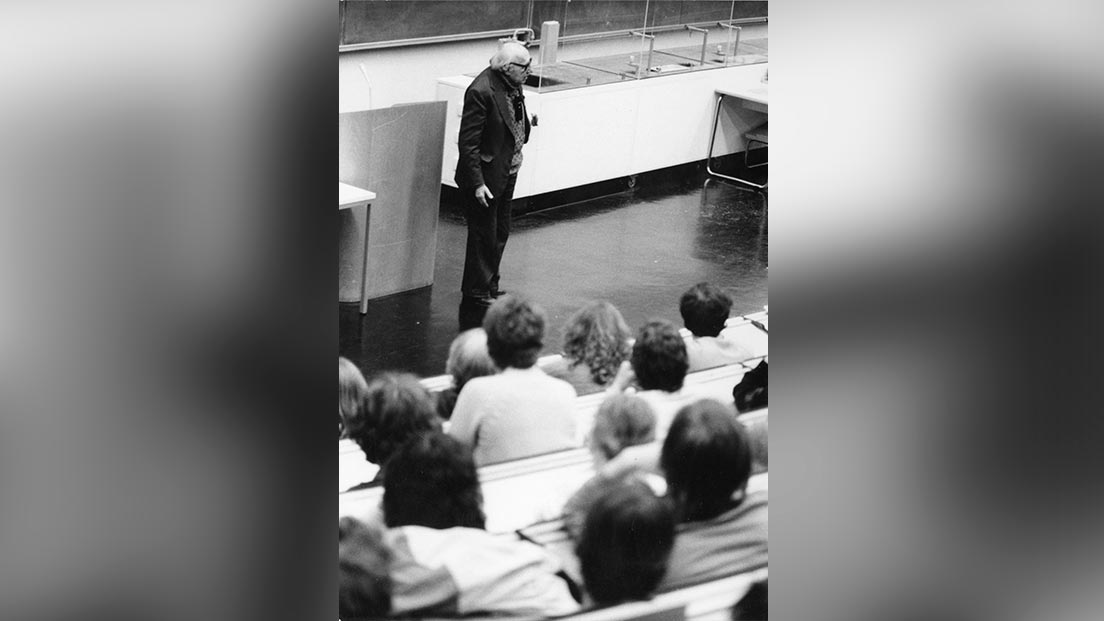
Lecture “Die deutsche Hochschule vor und nach der Machtergreifung” (The German University before and after the seizure of power) 26 April 1983.
–
Photo: Seutter
Source: Universitätsarchiv Bielefeld, FOS 01949
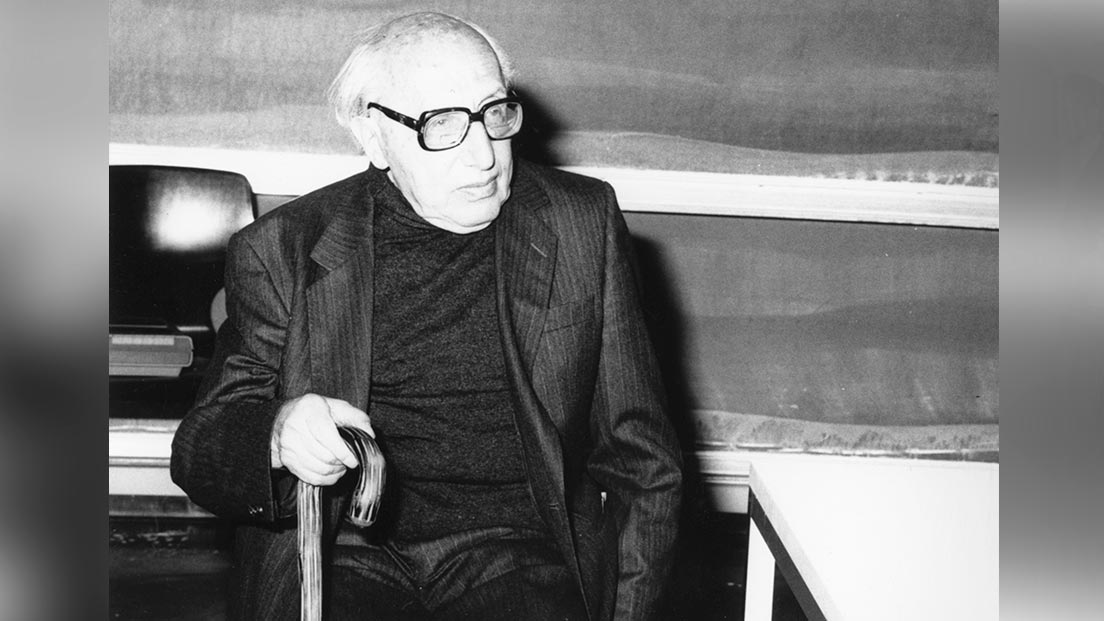
Professor Dr. Norbert Elias gives a lecture on “Conditio humana” in Bielefeld on May 8, 1985.
–
Photo: Norma Langohr
Source: Universitätsarchiv Bielefeld, FOS 01946
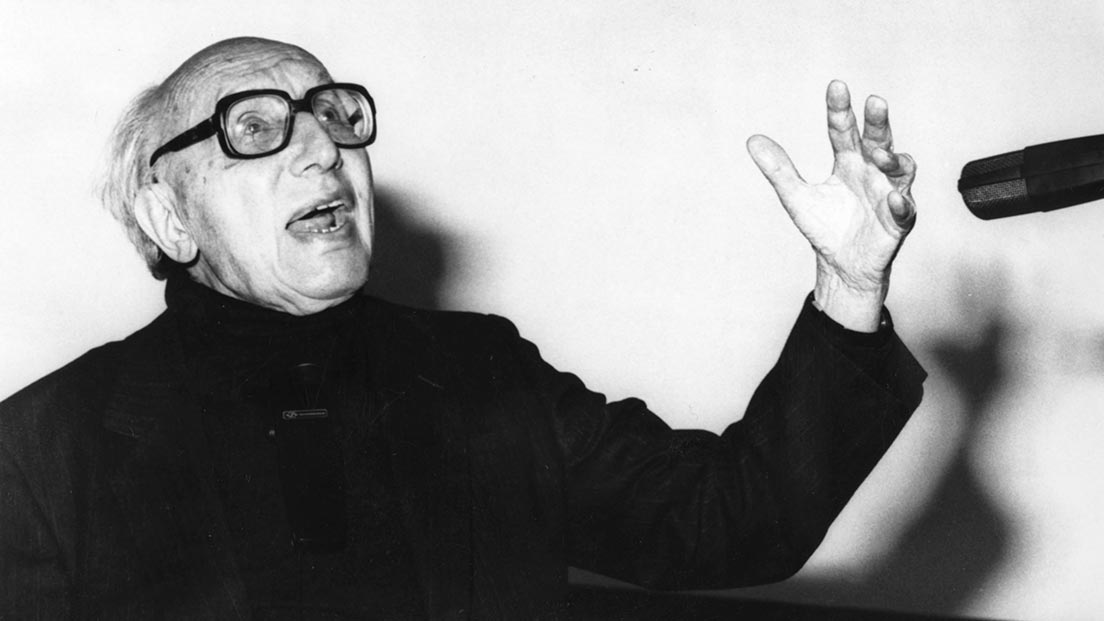
Professor Dr. Norbert Elias gives a lecture on “Conditio humana” in Bielefeld on May 8, 1985.
–
Photo: Norma Langohr
Source: Universitätsarchiv Bielefeld, FOS 01947
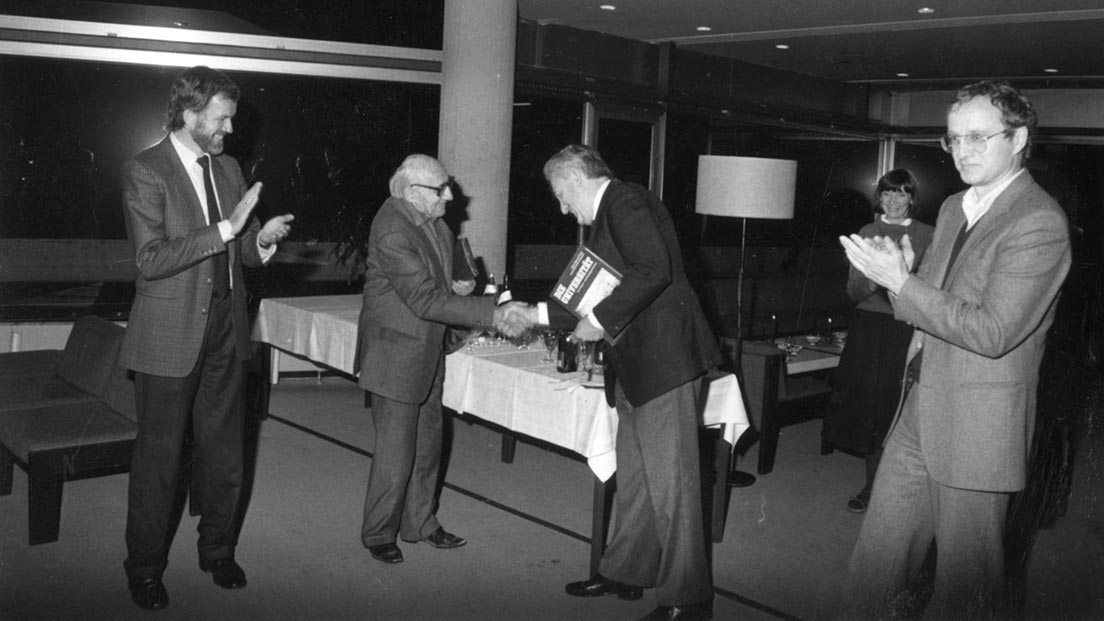
Norbert Elias bids farewell to Bielefeld University at the ZiF on 31 October 1984. From left to right: The Managing Director of the ZiF, Professor Dr. Wolfgang Prinz, Norbert Elias, Rektor Professor Dr. Karl Peter Grotemeyer and the dean of the Faculty of Sociology, Professor Dr. Johannes Berger.
–
Photo: Seutter
Source: Universitätsarchiv Bielefeld, FOS 01948
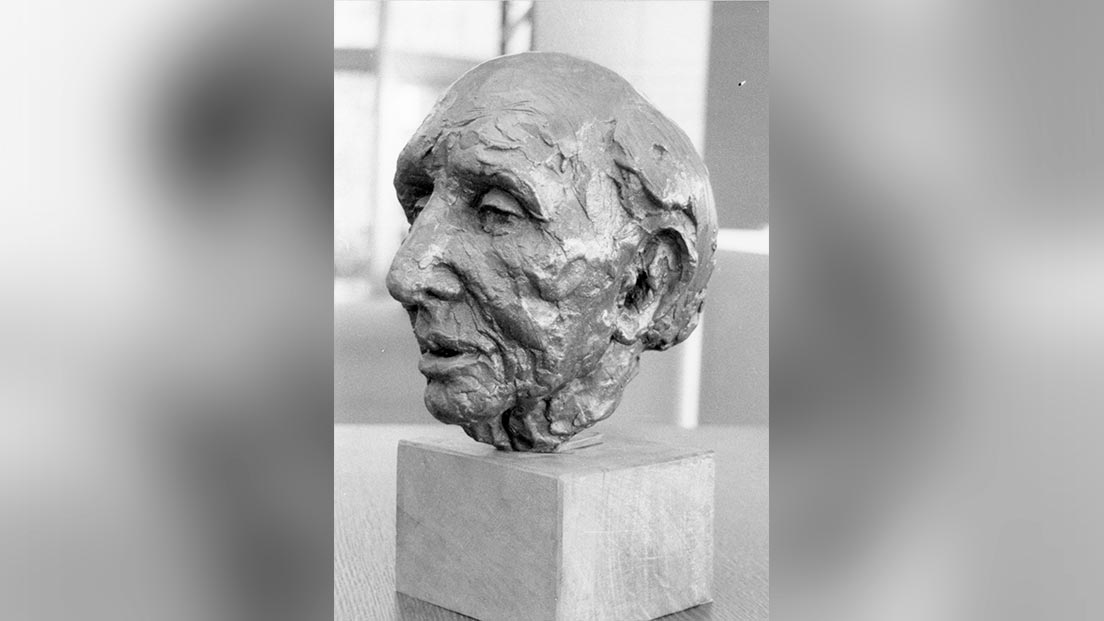
Bust of Norbert Elias, made by the artist Gerda Rubenstein 1981.
–
Photo: Norma Langohr
Source: Universitätsarchiv Bielefeld, FOS 01944.
Gladly at the ZiF
Norbert Elias enjoyed being at the ZiF. He himself emphasised that it was the ZiF that more than anything else, contributed to his staying in Germany for so long. He enjoyed the secluded and intellectually stimulating working atmosphere, where everything he needed could be found in the immediate vicinity: the library, the regularly visited swimming pool, the forest for his frequent walks, the university, where his lectures were enthusiastically received by the students. On the other hand, the ZiF and the university appreciated this modest and fascinating intellectual, whose tenure also contributed to the international reputation of the ZiF and the University.
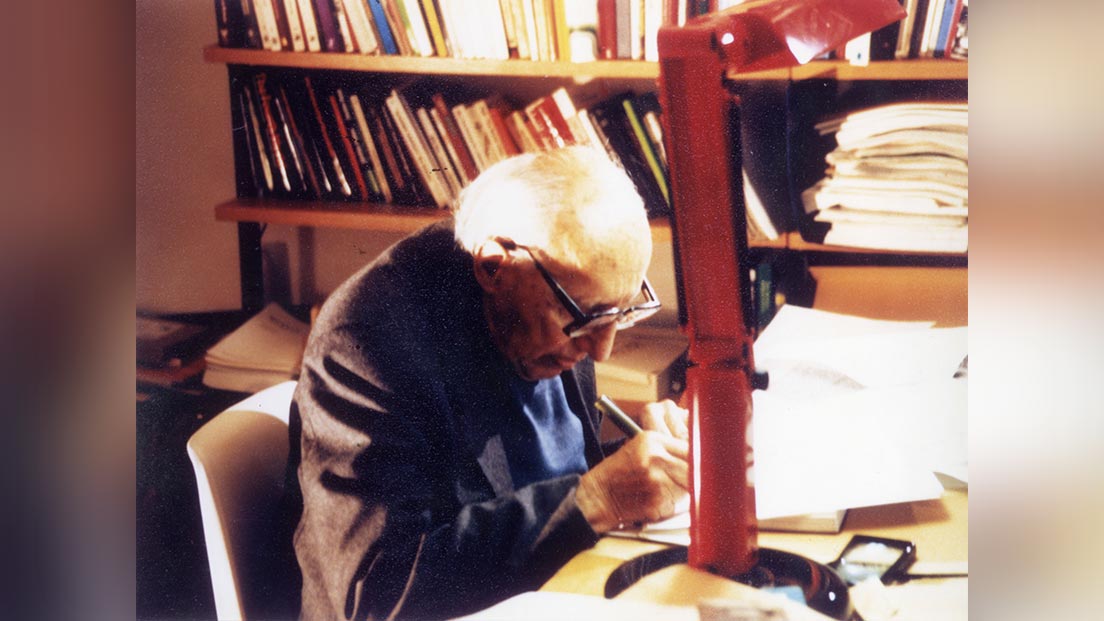
Norbert Elias in the library of the ZiF.
–
Photo: ZiF
Source: Universitätsarchiv Bielefeld, FOS 01951











